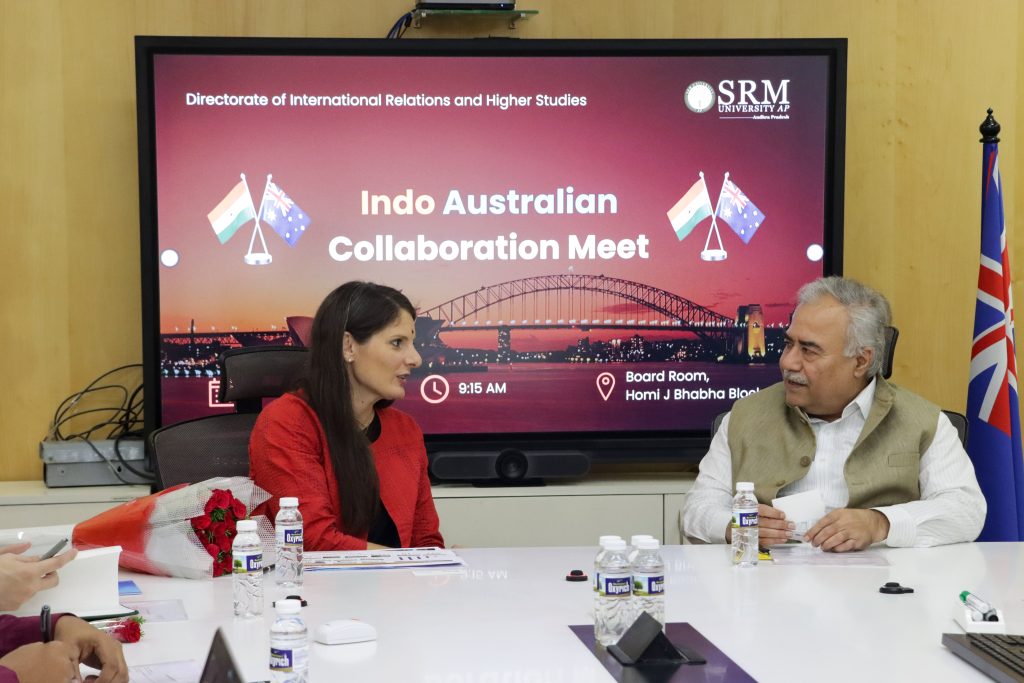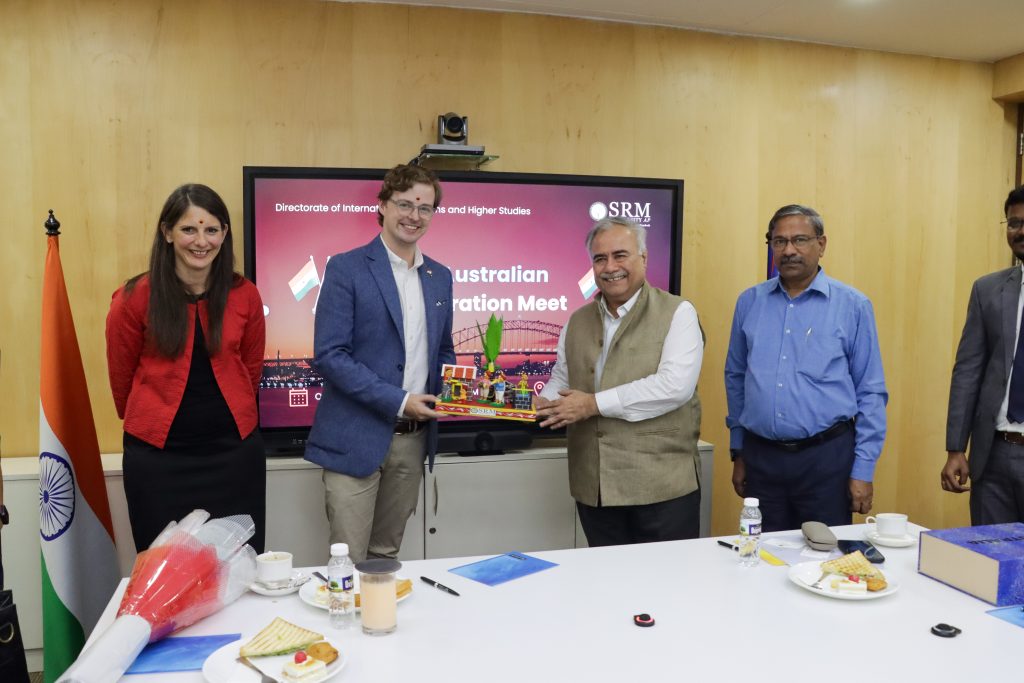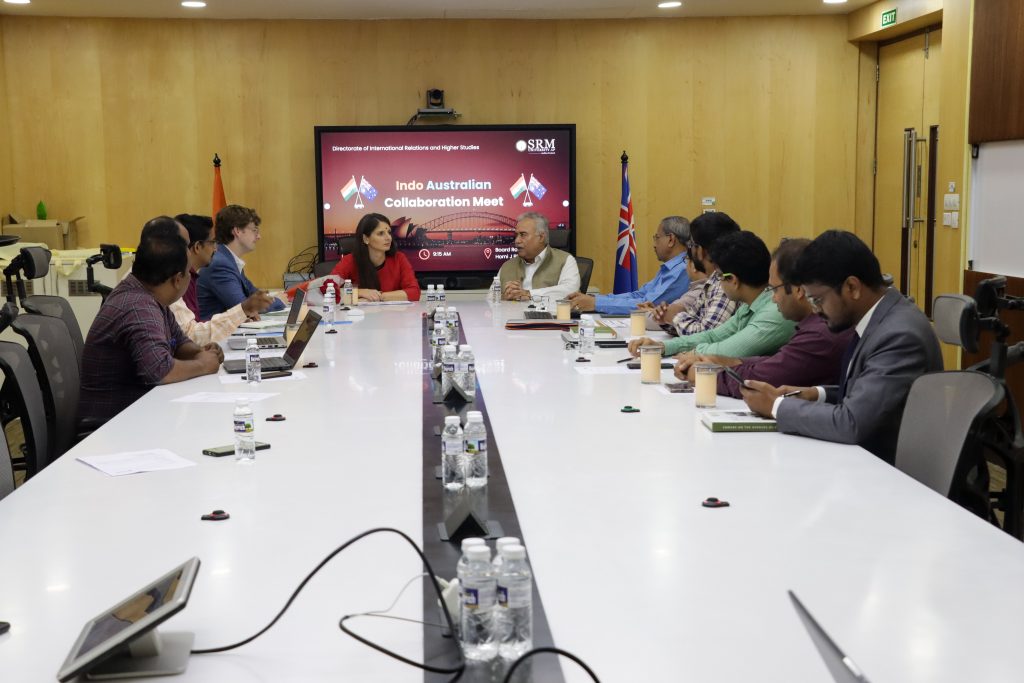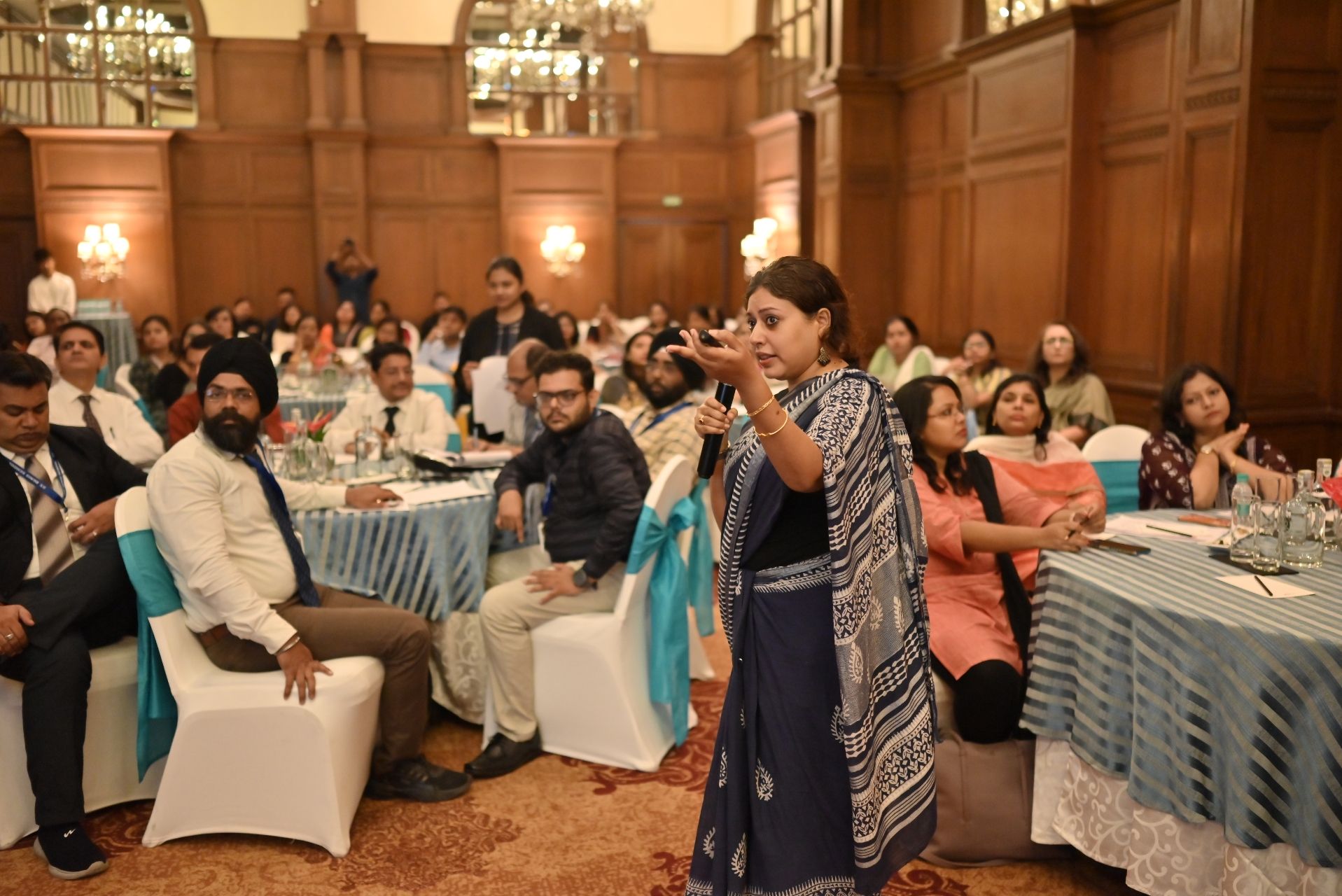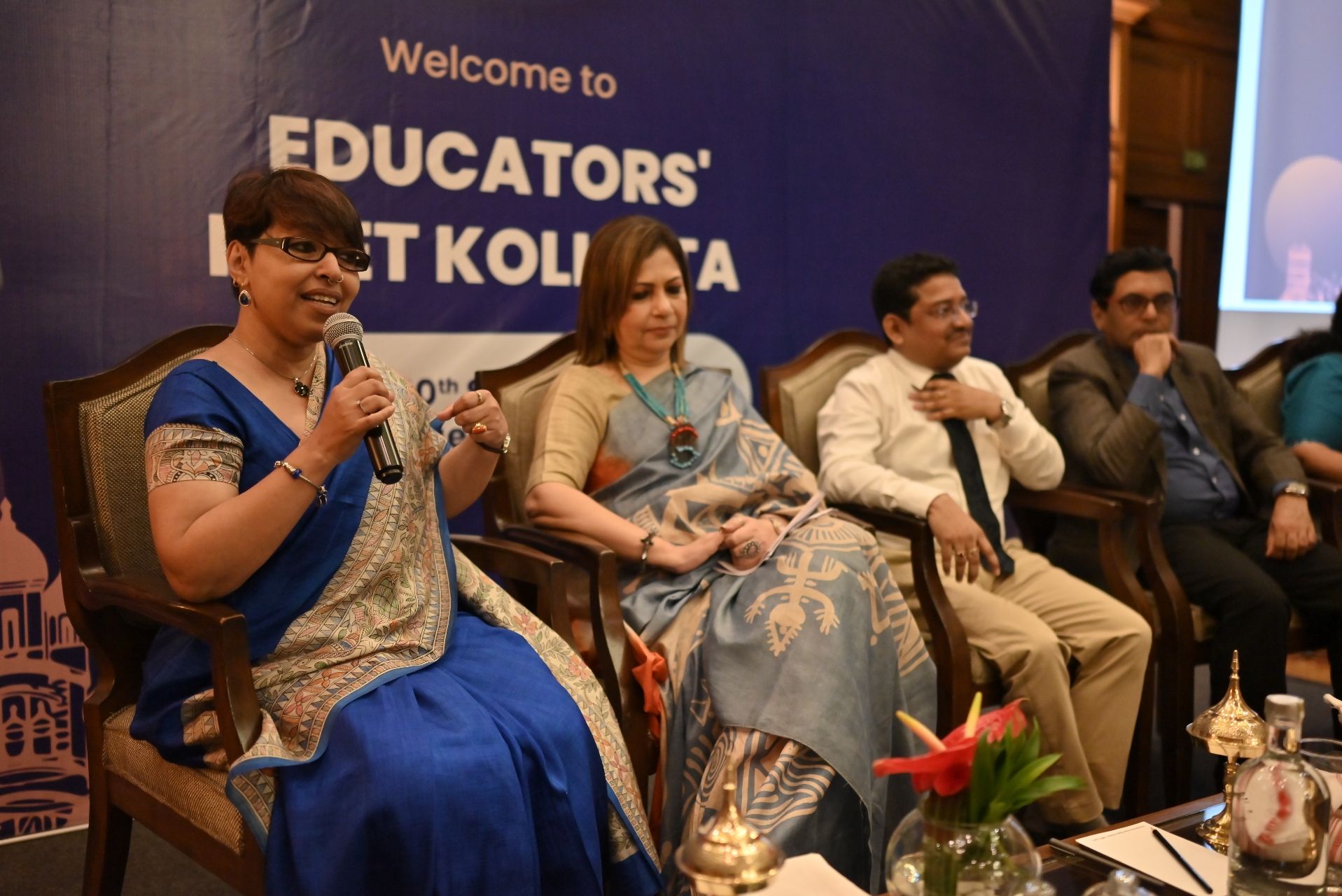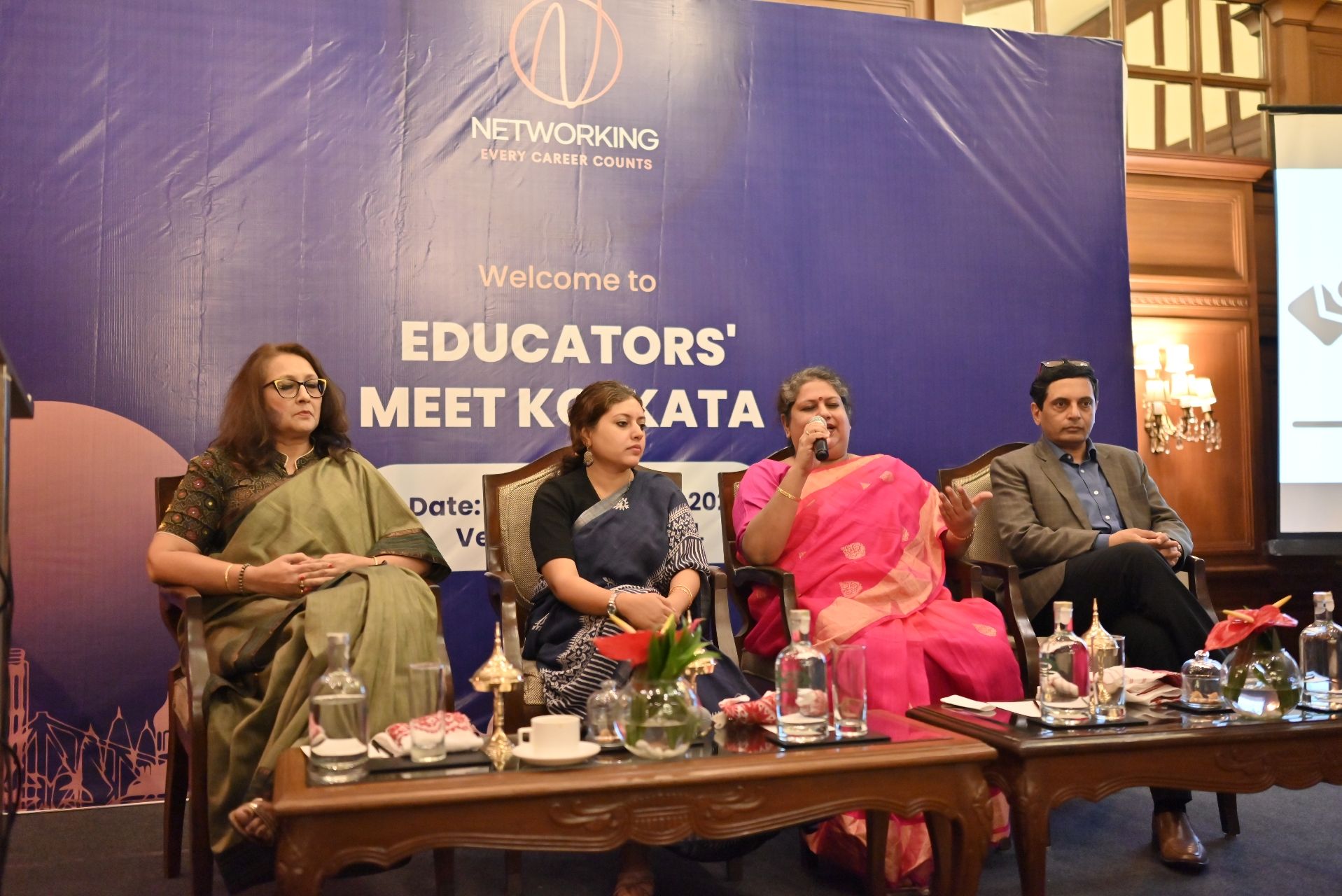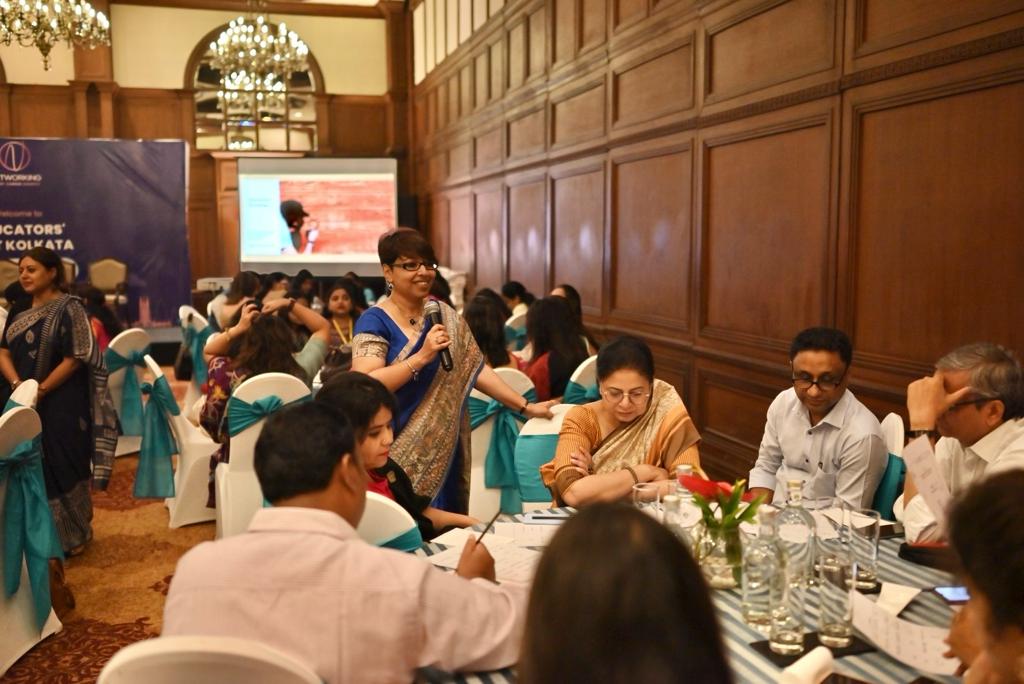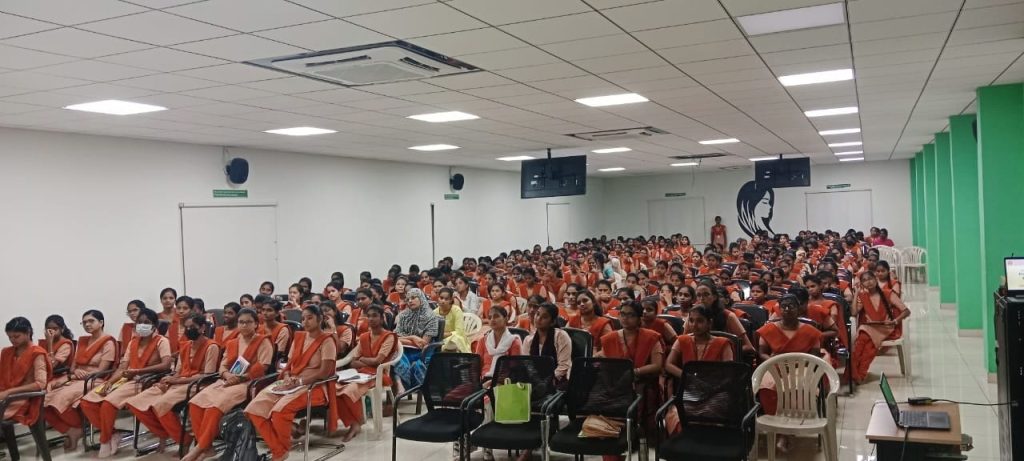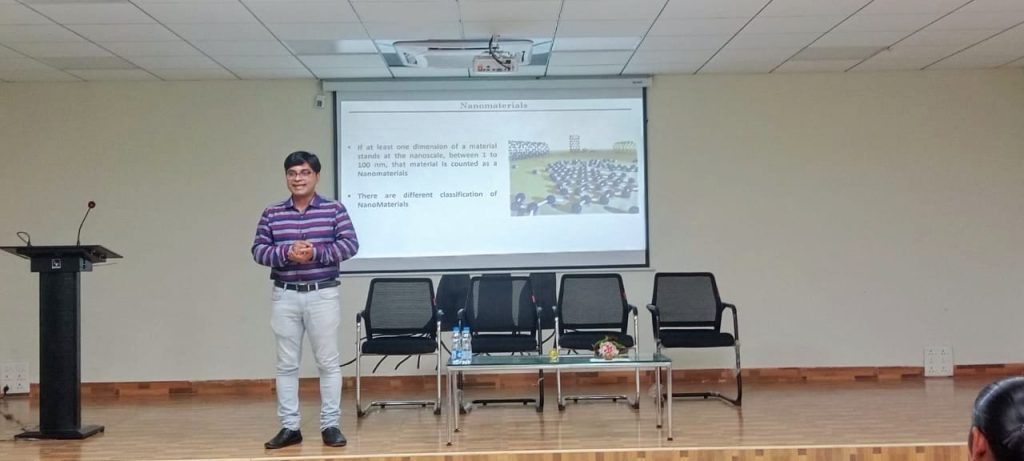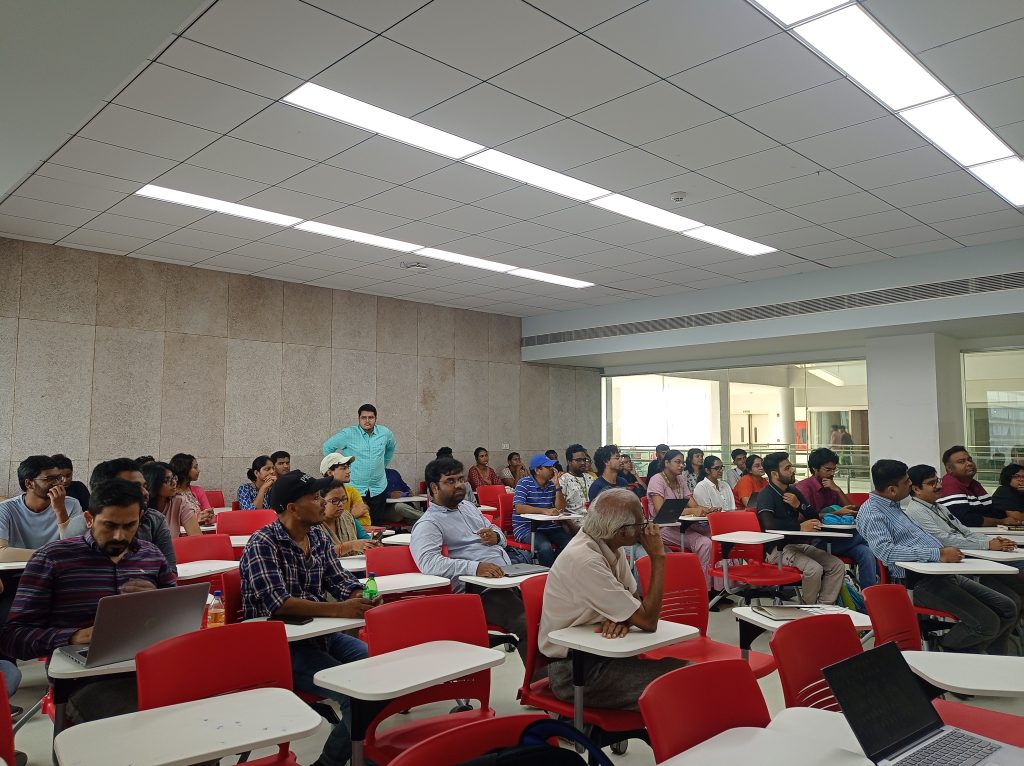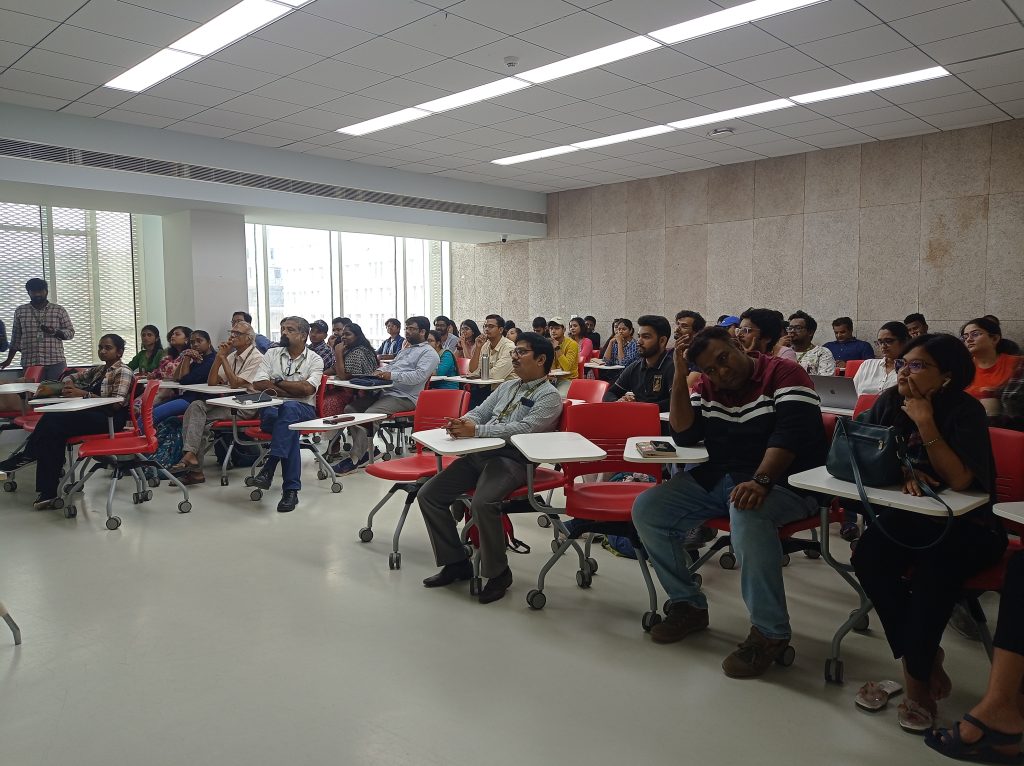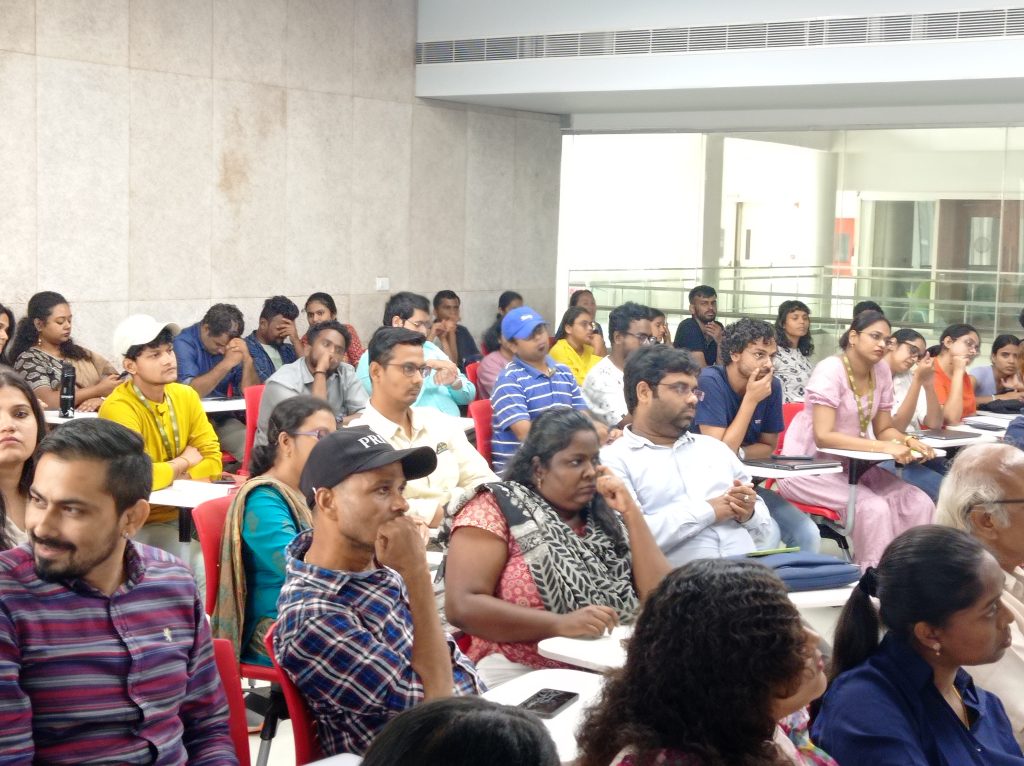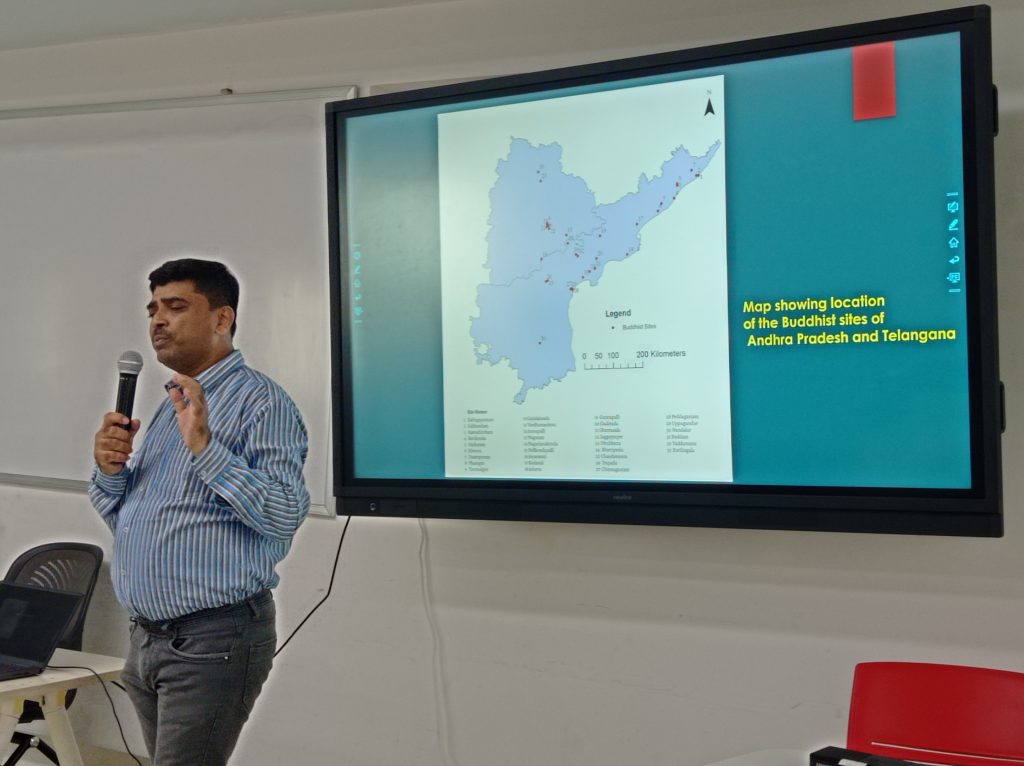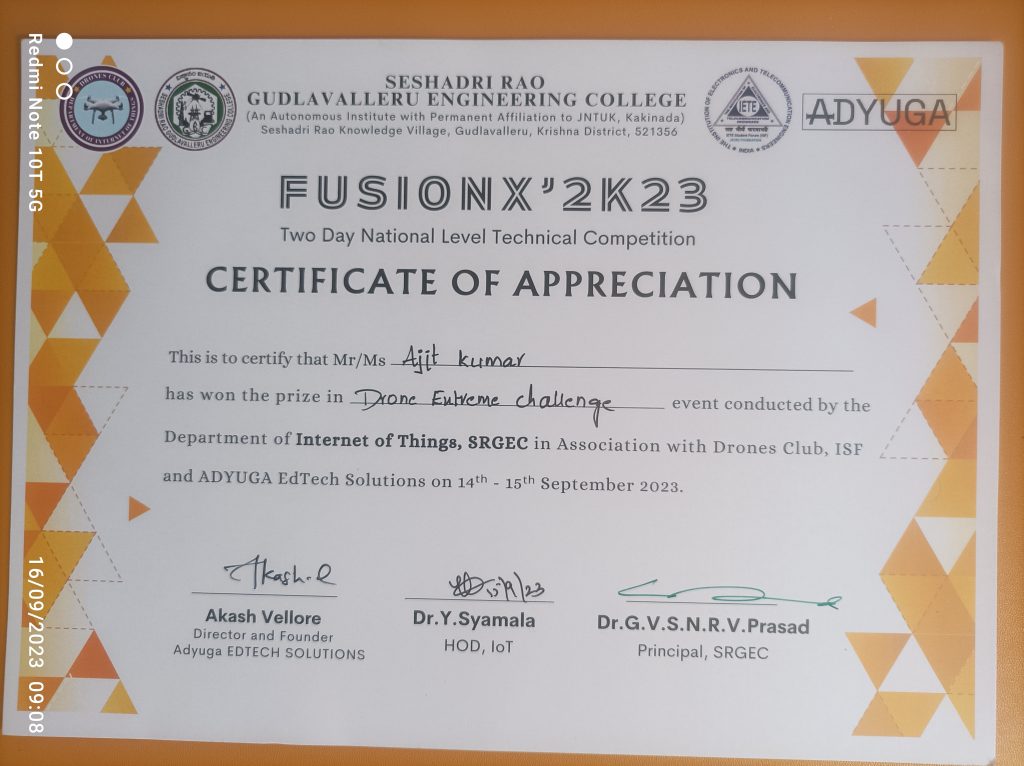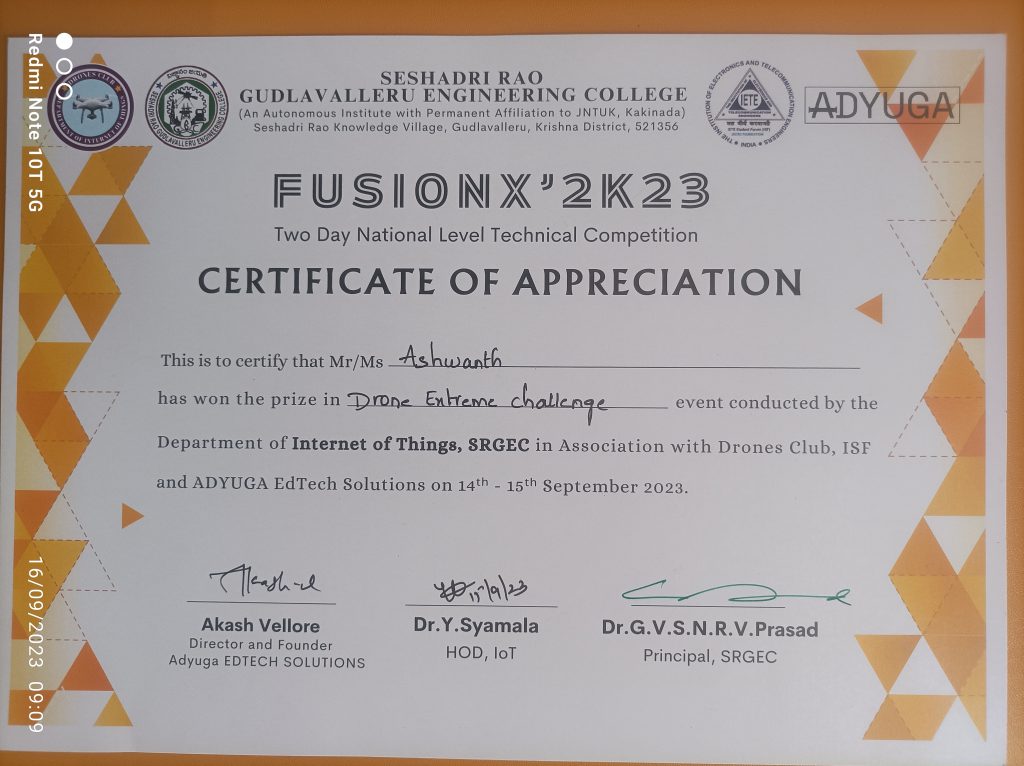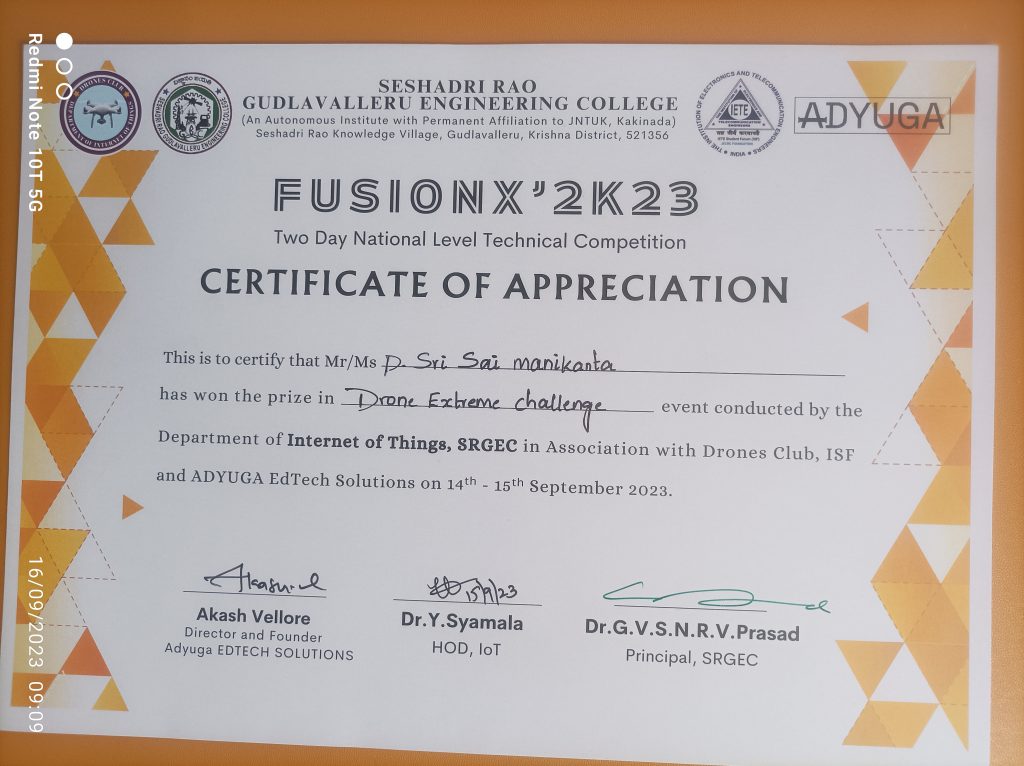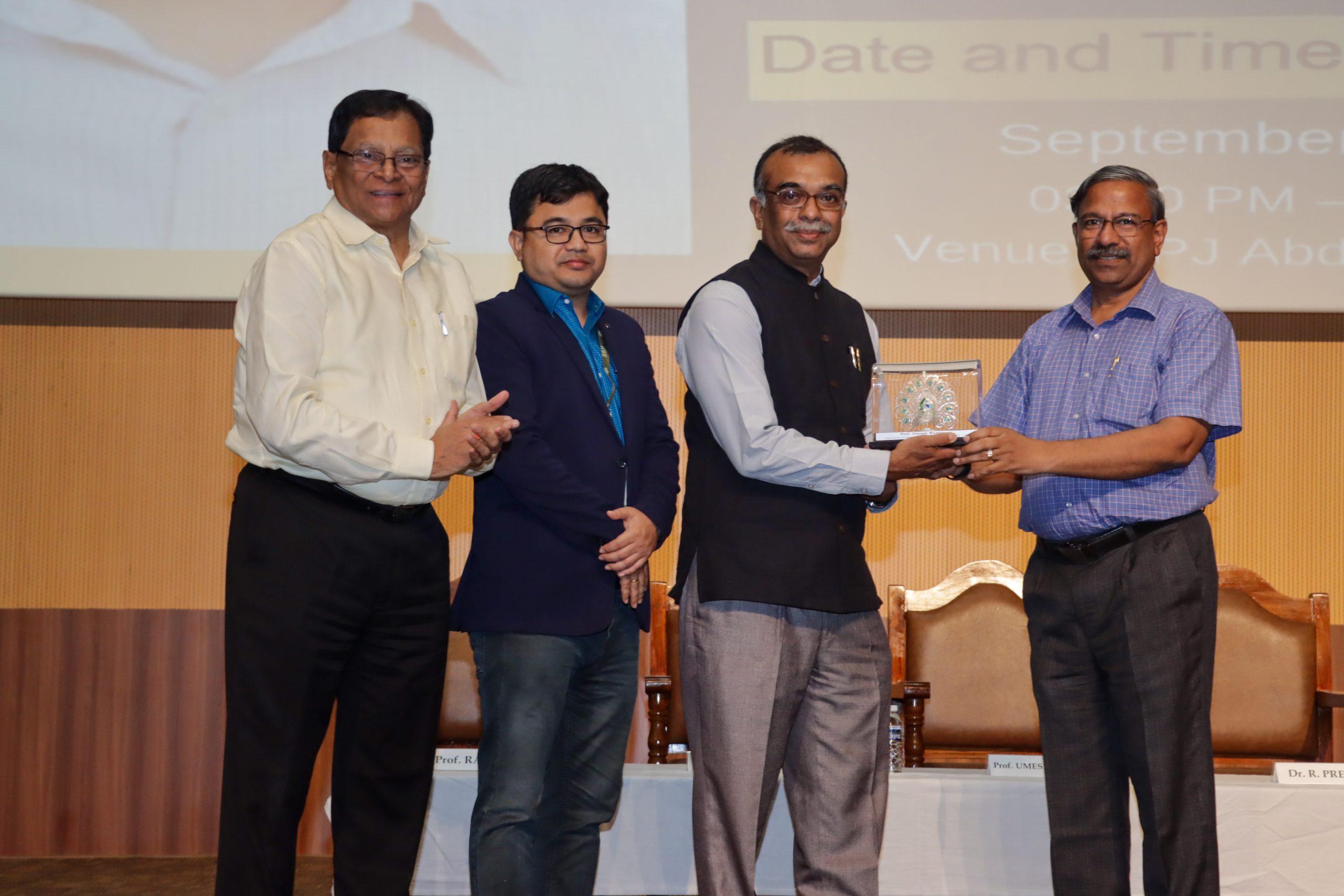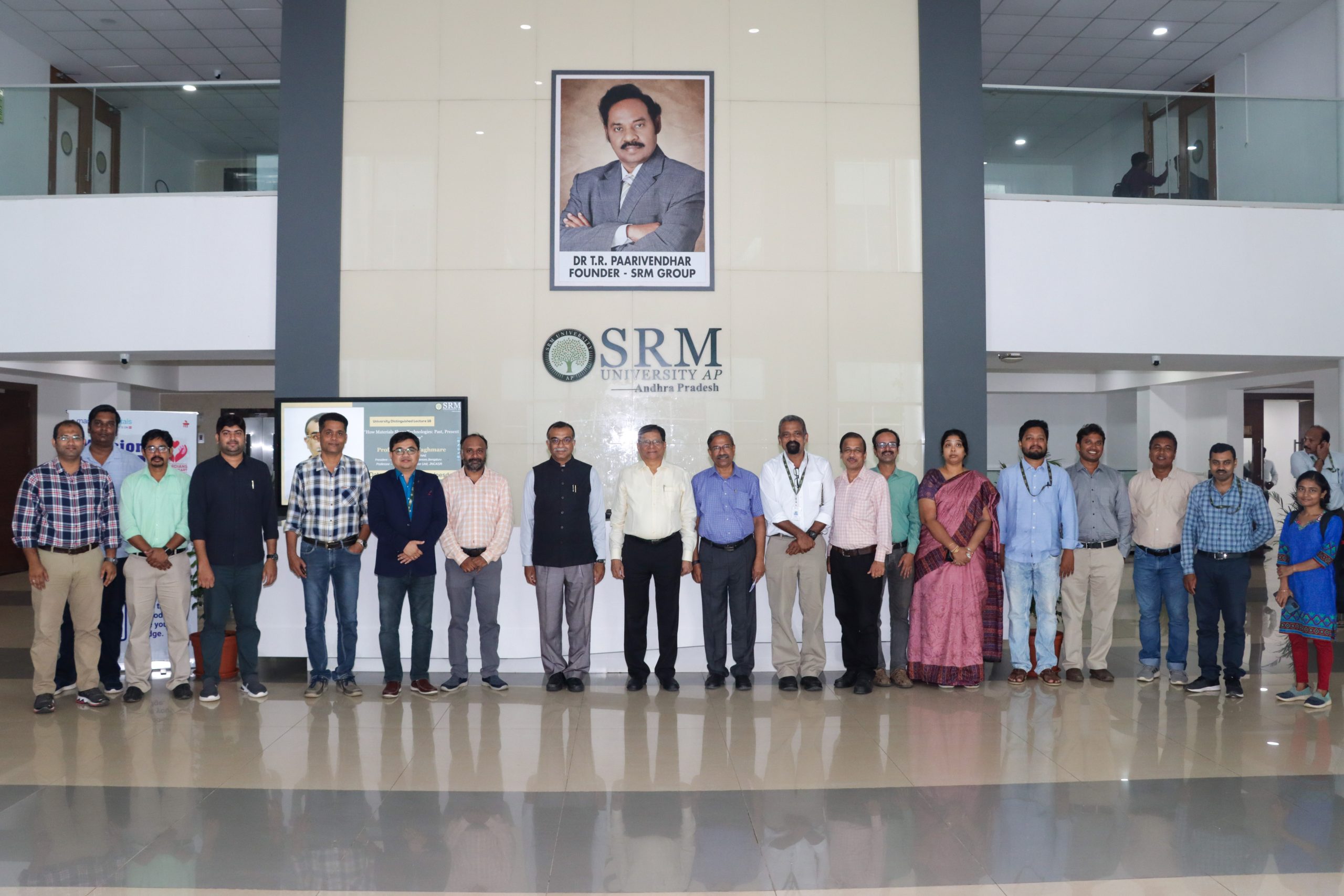Lecture on Marginalised Childhoods
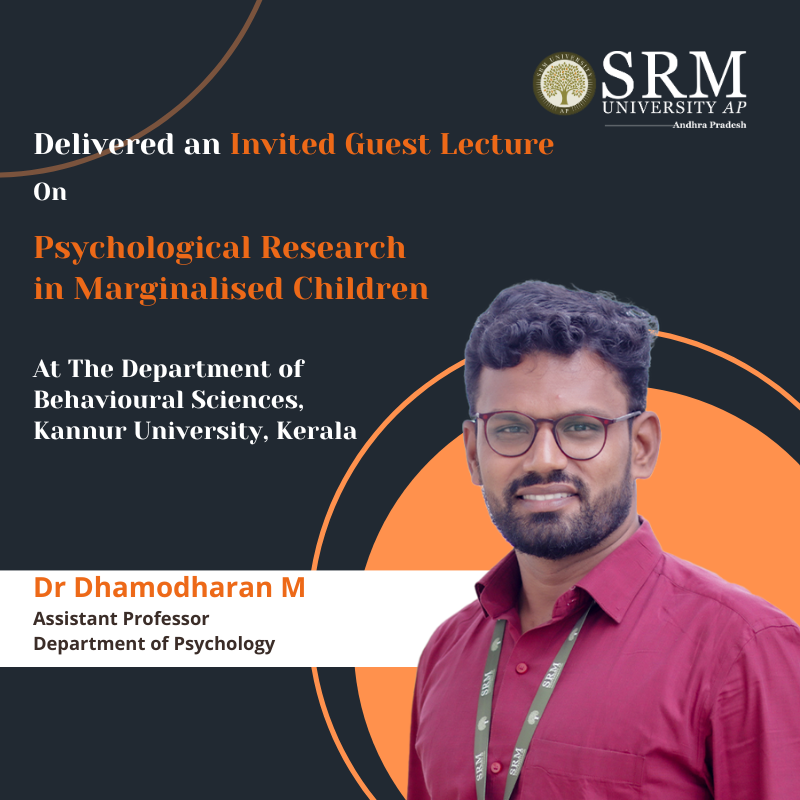
In an insightful talk at the Department of Behavioural Sciences in Kannur University, Dr Dhamodharan M, Assistant Professor at the Department of Psychology, SRM University-AP, shed light on “Psychological Research in Marginalized Children.” Dr Dhamodharan’s talk serves as a call to action, encouraging a deeper exploration of psychological research for the betterment of future generations.
Here’s an abstract of Dr Dhamodharan’s riveting talk.
Abstract
The invited lecture mainly focuses on the status and importance of psychological research in marginalized children. Marginalized People who are excluded from majority social, economic, educational, and/or cultural life. They are excluded due to race, gender identity, sexual orientation, age, physical ability, language, and/or immigration status (Baah et al.,2019). The term marginalized children include Children affected by or emerging from armed conflict or humanitarian crises, Children with disabilities, Children in remote or rural areas (including those who lack access to safe water and sanitation), Religious or ethnic minorities, Orphans, and children affected by HIV/AIDS, Child laborers, Married Children, Victims of trafficking (Legal Information Institute,2023). The World Health Organization defined “Child maltreatment is the abuse and neglect that occurs to children under 18 years of age. It includes all types of physical and emotional ill-treatment, sexual abuse, neglect, negligence, and commercial or other exploitation, which results in actual or potential harm to the child’s health, survival, development, or dignity in the context of a relationship of responsibility, trust or power” (World Health Organization, 2020). Children need essential nutrition, parental care, education, safety, entertainment, medical assistance, and physical, psychological, and social development (Deb & Ray, 2015). Children have their first human contact at home in a pleasant, nurturing, and caring environment; unfortunately, home is also where children are exposed to violence for the first time (United Nations Children’s Fund,2017). All children have the right to be safe from violence, oppression, and abuse. Despite this, globally, millions of children from all socioeconomic backgrounds, religions, cultures, and ages are subjected to violence and abuse daily. Violence against children is typical and endemic, and it is a terrible reality for millions of Indian children.
Over half of the world’s children have been subjected to extreme violence, with South Asia representing 64% of these instances (End Violence against Children | UNICEF India, n.d.) All types of violence against persons under 18 are considered violence against children. In 2019, about 1 billion children under eighteen experienced physical, sexual, or emotional violence or neglect globally (WHO, 2020). In the world, 3 out of 4 children aged 2-4 years were subjected to violent regulation from caregivers daily. Six out of ten children were exposed to physical punishment, one out of every two children aged 2 to 17 experienced some type of violence, and 18% of girl children experienced childhood sexual violence, while 8% of boys experienced the same (UNICEF, 2020; United Nations Children’s Fund, 2017). Victims of child abuse have also been exposed to more than one type of violence (Descartes et al., 2020).
Many countries are not prohibited corporal punishment. One in every two children aged 6 to 17 is subjected to corporal punishment. Around fifteen million girls aged 15 to 19 have been subjected to forced sex from partners, boyfriends, or husbands, with just one percent seeking professional help. Throughout the world, 1 in every three children aged 13 to 15 has experienced bullying at school. Girls face more psychological bullying than boys, whereas boys face more physical bullying than girls (UNICEF, 2020. Sexual assault and exploitation are the most common violence in slum regions. Those in positions of supremacy and authority, such as educators and leaders, are the primary perpetrators. Early pregnancy is also a serious concern among the underprivileged community, which leads to sexual exploitation (Nagasurendran, 2017).
Approximately 70 lakh children in India are not receiving all vaccinations, particularly in slum areas, migrant settlement areas such as fisher villages, construction sites, and inaccessible villages. This data is very high compared to all other countries globally. Proper childhood nutrition is a significant indicator of development and welfare, especially in developing countries. However, previous literature studies failed to focus on the children from the marginalized communities. The students from Psychology background need to explore the marginalized children’s health, education, and mental health. Furthermore, the marginalized children study findings would be an eye-opener for the social welfare department to take need-based welfare measures for marginalized children.
Current Status of Research
- Convenience sampling procedures overrepresent dominant groups (Rad et al., 2018)
- Only 5% of articles in one premier psychology journal predominately sampled ethnic minorities (Thalmayer et al., 2020)
- Less than 2% of psychological studies across three decades of research included sexual minorities as participants (Lee & Crawford, 2021)
Major Challenges faced by Marginalisation Children
- Health Issues – Malnutrition, Lack of healthcare facilities
- Lack of Educational Support
- Abuse and Violence
- Lack of Social Support
- Caste Discrimination
Areas to Study in Marginalization Children
- Discrimination in School and Community (Deb, 2019)
- Resilience and coping mechanisms (Dar,2020)
- Educational motivation and Teacher-student relationships (Martin,2020)
- Traumatic and Post Traumatic Stress (Szota,2023)
- Identity Formation (Yosef,2023)
- Social Support and Media Influence (Kaskazi,2023)
- Published in Departmental News, News, Psychology News
Physics Duo Publish in Prestigious Journal
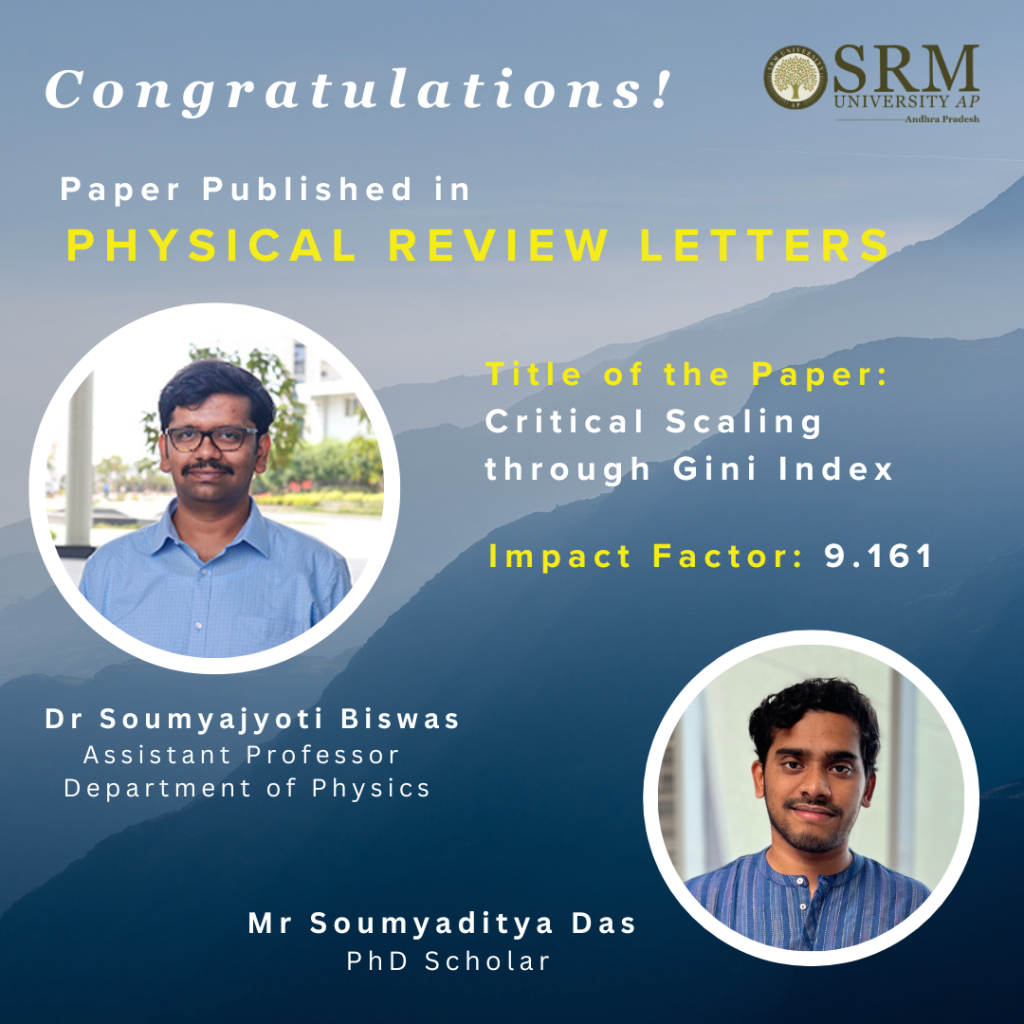
Dr Soumyajyoti Biswas, Assistant Professor in the Department of Physics, along with his Doctoral Scholar, Mr Soumyaditya Das, have presented groundbreaking findings through their research work titled “Critical Scaling through Gini Index”. The research paper was featured in the prestigious Physical Review Letters, which has an impact factor of 9.161.
Abstract
In the systems showing critical behaviour, various response functions have a singularity at the critical point. Therefore, as the driving field is tuned toward its critical value, the response functions change drastically, typically diverging with universal critical exponents. In this Letter, we quantify the inequality of response functions with measures traditionally used in economics, namely by constructing a Lorenz curve and calculating the corresponding Gini index. The scaling of such a response function, when written in terms of the Gini index, shows singularity at a point that is at least as universal as the corresponding critical exponent. The critical scaling, therefore, becomes a single parameter fit, which is a considerable simplification from the usual form where the critical point and critical exponents are independent. We also show that another measure of inequality, the Kolkata index, crosses the Gini index at a point just prior to the critical point. Therefore, monitoring these two inequality indices for a system where the critical point is not known can produce a precursory signal for imminent criticality. This could be useful in many systems, including condensed matter, bio- and geophysics to atmospheric physics. The generality and numerical validity of the calculations are shown with the Monte Carlo simulations of the two-dimensional Ising model, site percolation on the square lattice, and the fibre bundle model of fracture.

Fig.1: Shows the crossing point of the Gini index and the Kolkata index prior to critical point for three different models (from left Ising model in 2d, site percolation in 2d and fiber bundle model of fracture) form both side of critical point.
Collaborations and Future Plans
This work essentially builds a framework for indicating imminent critical points for any system. Therefore, in situations where such knowledge is vital, for example, in the fracture of solids, the method is going to be highly useful in forecasting the failure point. We are in the process of working with our collaborators at the University of Barcelona to experimentally verifying our methods for the compressive failure of porous samples. This is a significant first step towards opening new pathways in forecasting fracture points in disordered materials that could have an impact on laboratory-scale fractures to large constructions and eventually to earthquakes.
We wish the teacher-student duo many more fulfilling and enriching research endeavours in future!
- Published in Departmental News, News, Physics News, Research News
SRM AP Hosts Australian Delegation for Collaborative Initiatives
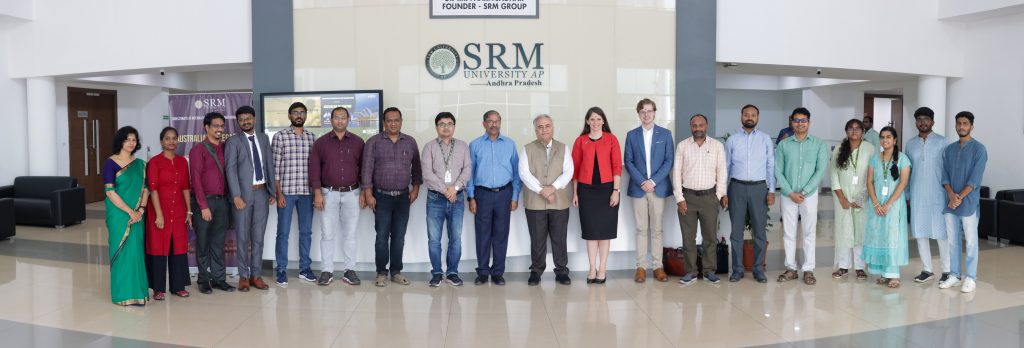
SRM University-AP played host to a dynamic and visionary Indo-Australian Collaboration Meet aimed at fostering academic partnerships and research collaborations between the two nations. The event featured a delegation led by H.E. Sarah Kirle, the Australian Consulate General. It occurred in the esteemed presence of Vice Chancellor Prof. Manoj K Arora and Registrar Dr R. Premkumar.
The Collaboration provided a platform for fruitful discussions and exploring potential collaborative initiatives between educational institutions in India and Australia. The discussions centred around ways to promote the exchange of knowledge, faculty and students, as well as joint research initiatives and cultural programs. Both parties expressed their commitment to developing academic exchange programmes that would allow students and faculty to gain a deeper understanding of each other’s cultures and educational environments. The meeting identified potential research areas where Australian institutions and SRM University-AP could work together to address global challenges and significantly contribute to the respective fields.
The panel featured discussions and brainstorming sessions, with research taking centre stage. The parties deliberated on developing a framework for collaborative research projects, which would encourage knowledge exchange and innovative solutions to global challenges. Discussions revolved around student and faculty exchange programmes, fellowship, and scholarship opportunities that would promote cross-cultural understanding and enrich the educational experience.
The visit served as a significant step in fostering relationships between SRM University-AP and Australian institutions, with the shared goal of promoting global education and research. It will signify a commitment to expanding horizons and offering students a broader and more enriching educational experience.
Empowering the Future of Education: SRMAP at Educators’ Meet
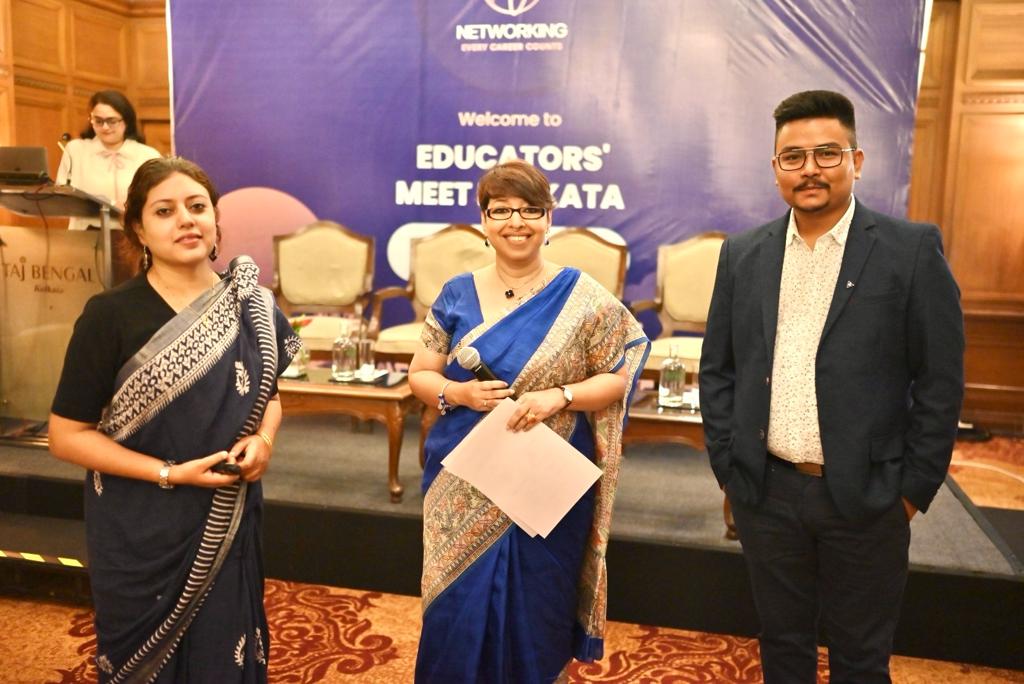
A transformative event in the field of education unfolded at the prestigious Taj Bengal Kolkata on September 30, 2023, as Networking, the event organiser, brought together visionaries, educators, and leaders from renowned institutions for a day of enlightening discussions. The symposium featured an engaging workshop on “Innovative Teaching Methods” and a panel discussion by acclaimed scholars from SRM University-AP and others on “Addressing Inclusivity in Education”.
SRM University-AP shared the stage with Mahindra University Hyderabad as presenters, sharing their insights into the dynamic world of academia. Their presentations provided a roadmap for educators to navigate the evolving landscape of teaching and learning. The event welcomed an illustrious audience, including the principals of some of Kolkata’s most esteemed schools, such as Don Bosco School, National English School, M P Birla Foundation Higher Secondary School, Ashok Hall Girls’ School, Sushila Birla Girls’ School, and Indus Valley World School and many more. This convergence of educational leaders was a testament to the growing need for innovation and inclusivity in the modern education system.
The workshop on Innovative Teaching Methods, led by SRM University-AP, aimed to empower educators with cutting-edge pedagogical tools and approaches. Presenters emphasised the need for adaptive learning, technology integration, and the nurturing of critical thinking skills. Attendees gained practical insights on how to create engaging, student-centered classrooms that inspire curiosity and creativity. The panel discussion on “Addressing Inclusivity in Education” was a powerful forum for introspection and collaboration. Renowned educator Dr Srabani Basu from SRM University-AP led the discourse on fostering an inclusive learning environment. The discussion revolved around strategies for accommodating diverse learning styles, ensuring equitable opportunities for all, and the role of education in shaping empathetic, well-rounded individuals.
A grand canvas was painted with discussions on “Preparing Students for Future Careers.” This event was more than just a meeting; it was a symphony of ideas, a platform for forging meaningful connections, and a springboard to a future of innovation and progress in education. The collaborative energy and innovative spirit that permeated the event offered a glimpse into the future of education. Participants left with a deeper understanding of the transformative power of innovative teaching methods and a collective commitment to make education accessible and inclusive for all. At SRM University-AP, we believe that events like these are pivotal in shaping the future of education. We are committed to embracing innovative teaching methods and fostering inclusivity to prepare our students for the dynamic and ever-evolving careers of the future.
- Published in Departmental Events, English, Events, History Events
Best Paper Award: Accorded to Dr Supen Kumar at MRAE 2023
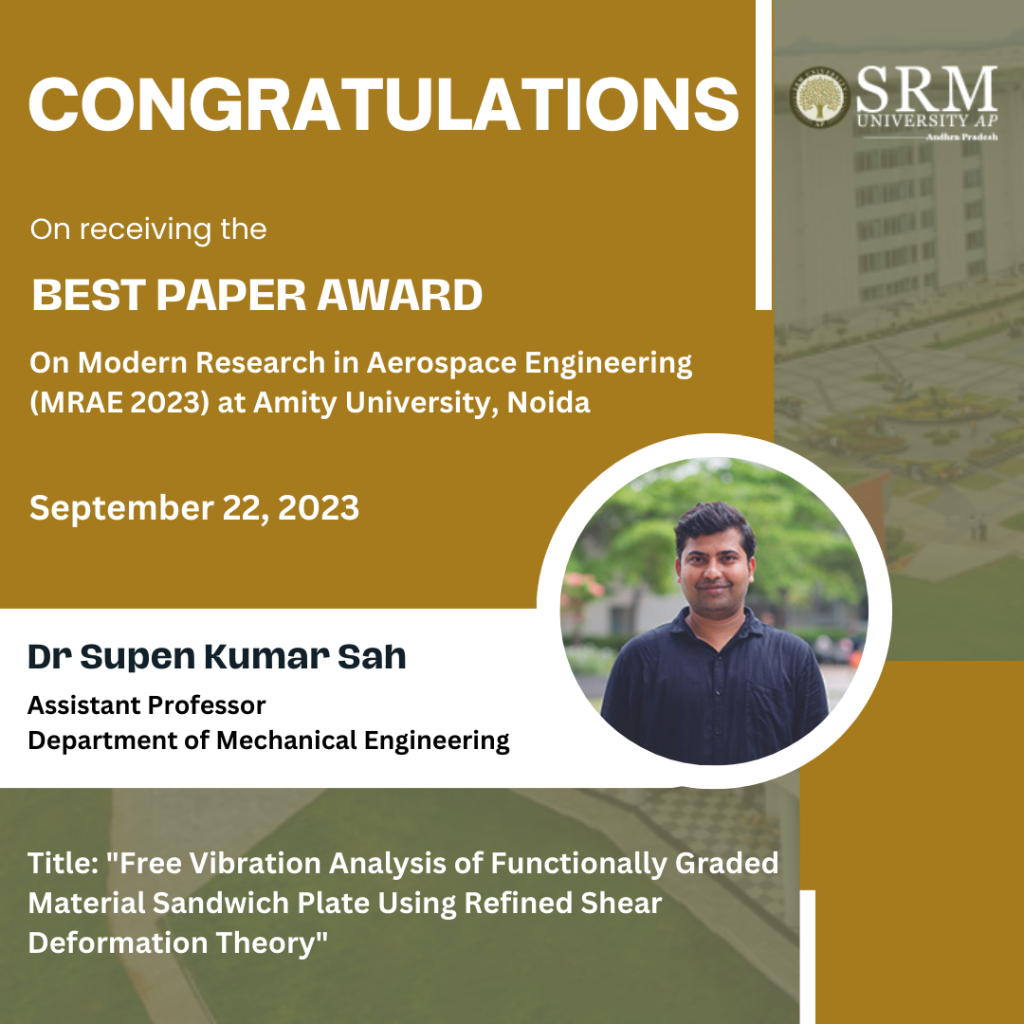
The Department of Mechanical Engineering is delighted to share that Dr Supen Kumar Sah, Assistant Professor, Department of Mechanical Engineering, has received the best paper award for his paper titled “Free Vibration Analysis of Functionally Graded Material Sandwich Plate Using Refined Shear Deformation Theory” in the 2nd International Conference on Modern Research in Aerospace Engineering (MRAE 2023). Dr Supen collaborated with Saloni Malviya of VIT, Bhopal, for the research paper. The paper explores the intricate dynamics of functionally graded material sandwich plates, employing a refined deformation theory. Dr Sah’s exceptional work has not only contributed to the scientific community but has also demonstrated his dedication and passion for advancing knowledge in the field of materials science and engineering.
Abstract
In the present study, free vibration analysis of a functionally graded material sandwich plate has been carried out using refined shear deformation theory. The shear correction factor is not needed since the parabolic variation of shear strain through the thickness is in such a way that shear stresses vanish on the plate surfaces. Hamilton’s principle is used for the derivation of the equation of motion for the theory. Additionally, Navier’s solution is used to obtain the eigenvalue equation for the sandwich plate. The three variants of sandwich plate are chosen for the analysis. To carry out the free vibration analysis three different types of FGM sandwich plate models namely 1-1-1, 1-2-1, and 2-2-1 have been considered. A power law defines the volume fraction index and the material properties of the individual layers of the sandwich plate. Lastly, the impact of parameters such as volume fraction, aspect ratio, and length-to-width ratio on frequency parameters is investigated.
Future Research Plans
• Modelling and Analysis of porous uni and multi-directional Functionally Graded Material (FGM) plates to obtain the impact of porosity distributions over structural responses.
• Analytical and finite Element Solutions for static and dynamic response of FGM sandwich plates employing non-polynomial shear deformation theories under elastic foundation.


- Published in Departmental News, Faculty Achievements, Mechanical Engineering NEWS, News, Research News
Inspiring the Next Generation: A Guest Lecture on Advances in Nanotechnology
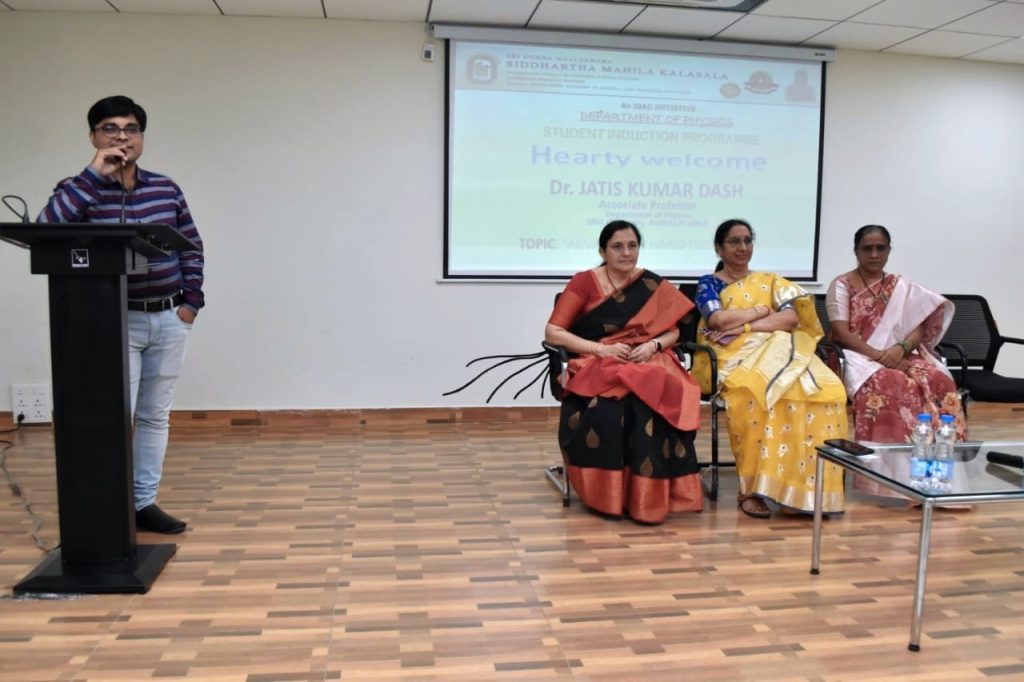
Dr Jatis Kumar Dash, Associate Professor in Physics at SRM University-AP, delivered an invited lecture on Advances in Nanotechnology at Sri Durga Malleswara Siddhartha Mahila Kalasala, Vijayawada on September 30, 2023.
During the lecture, the students were actively engaged and asked insightful questions that demonstrated their keen interest in how nanotechnology can address global challenges in fields like energy and security. By the end of the lecture, many students expressed their interest in pursuing research careers and visiting the varsity to conduct short internship programmes under the guidance of the faculty members in the Department of Physics and explore the advanced laboratories. Dr Jatis was happy to have sparked the students’ interest in nanomaterials and devices.
SRM University-AP is committed to providing students with opportunities to learn about cutting-edge technologies and develop the skills they need to succeed in their careers. The guest lecture on Advances in Nanotechnology is just one example of how the university is working to prepare students for the future. In the spirit of innovation and nurturing the dreams of these young minds the varsity extended an open invitation to the students of Sri Durga Malleswara Siddhartha Mahila Kalasala to explore our state-of-the-art laboratories and engage in research opportunities. The students can experience the frontiers of science and directly take part in the current ongoing research works.
- Published in Departmental News, News, Physics News
Discourse on Buddhism provides Valuable Insights
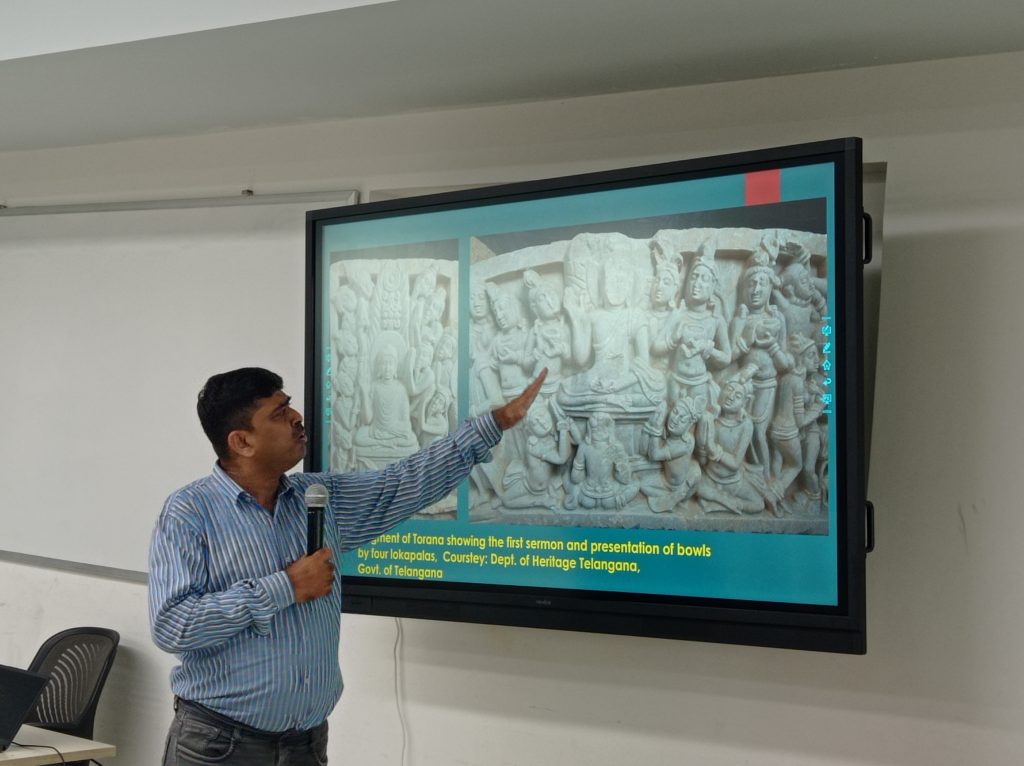
Dr Shrikant Ganvir, Assistant Professor in Ancient Indian History, Culture, and Archaeology from Deccan College Post Graduate Research Institute, Pune, delivered an invigorating session organised by the Department of History at SRM University-AP on October 11, 2023. Dr Ganvir’s session dealt with Buddhist studies, particularly of the Andhra region, and he has extensively worked on sites like Phanigiri, Salihundam, Amaravati, Guntapalli, and likewise.
Dr. Ganvir specialises in Buddhist art, architecture, and iconography. His area of expertise includes the religious history of Deccan, the history of Buddhism in South Asia, the rock-cut architecture of the Deccan, the religious imagery of ancient India, and the archaeology of religions. His broad knowledge in these fields allowed him to share enlightening insights with his audience.
- Published in Departmental News, History Current Happenings, History News, News
Unlocking Opportunities: A Glance at Education Expo 2023
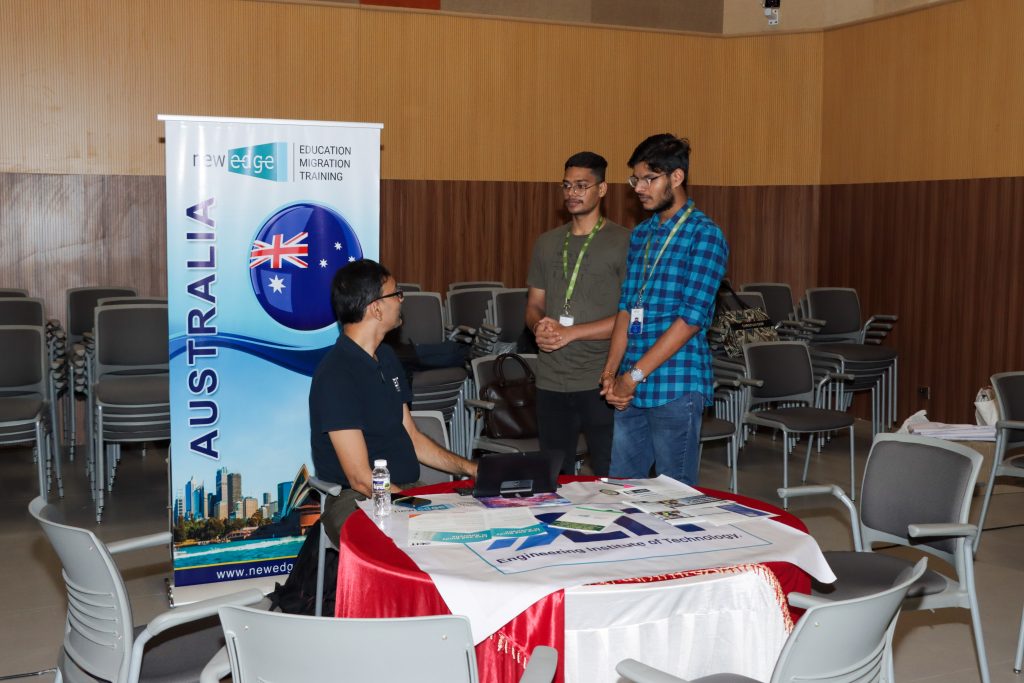
The Directorate of International Relations & Higher Studies (IR&HS) hosted the Education Fair on Wednesday, October 11, 2023, to provide meticulous guidance on higher education in universities and programmes across the globe. The event featured major universities from USA and UK, including the University of Missouri St Louis, USA, University of Greenwich, UK; Coventry University, UK; California State University, USA; York University, Canada and many more.
The event provided students with a compass for their educational journey. Expert advisors and counsellors offered insights into courses for higher studies, and scholarships, and guided them toward the right choices for their future. From business and engineering to arts and sciences, the expo showcased the diversity of worldwide educational opportunities.
The SRM University-AP’s education fair was a source of inspiration for students, motivating them to dream big and aim high. The education expo was more than just an event; it promised a brighter future, a world of opportunities, and a global perspective on education.
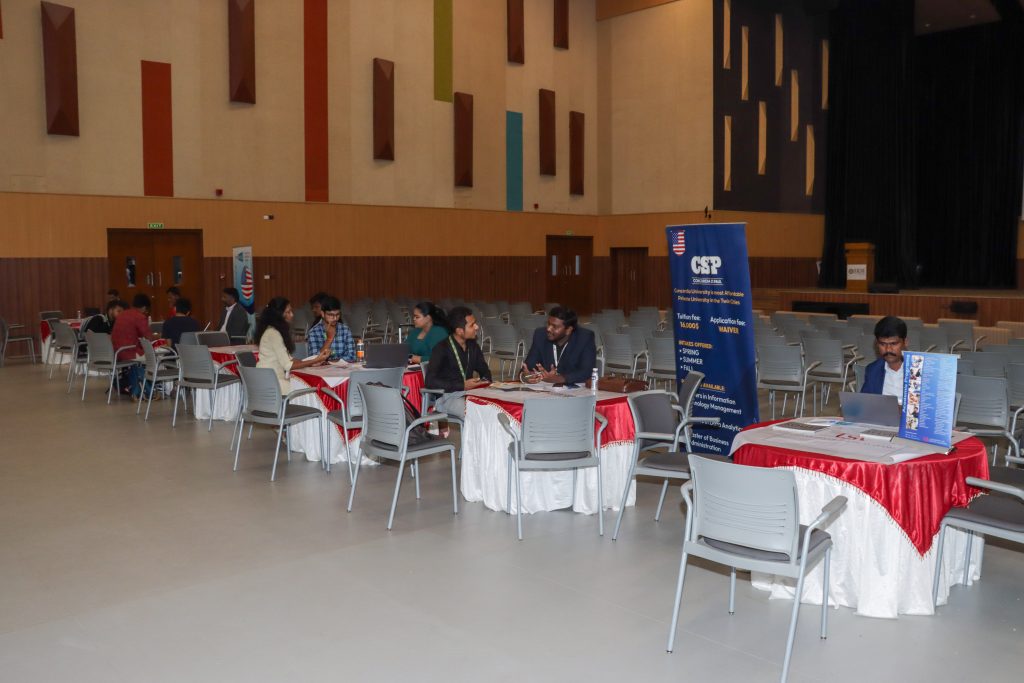
- Published in Departmental News, International Relations, IR-News, News
SRM University-AP Shines at FUSIONX-2023
The second-year BTech team of SRM University-AP achieved remarkable success at the prestigious National Level Technical Competition FUSIONX-2023. The two-day event was held at S R Gudlavelluru Engineering College (SRGEC), where our team’s exceptional skills and knowledge earned them well-deserved laurels. It is a testament to our students and faculty’s hard work and dedication!
Three of our students, Mr Sri Sai Manikanta, Mr Ashwanth, and Mr Ajit Kumar, were victorious in the Drone Extreme Challenge and received a cash prize of Rs. 2500. This technical event was held on September 14 and 15, 2023, and was organised by the Department of the Internet of Things (IoT) at SRGEC in collaboration with the Drone Club, ISF and ADYUGA EdTech Solutions.
Hearty congratulations to the champions on this noteworthy accomplishment!
- Published in Departmental News, ECE NEWS, News, Students Achievements
IASc President Delivers the UDL and Inaugurates Centre of Excellence
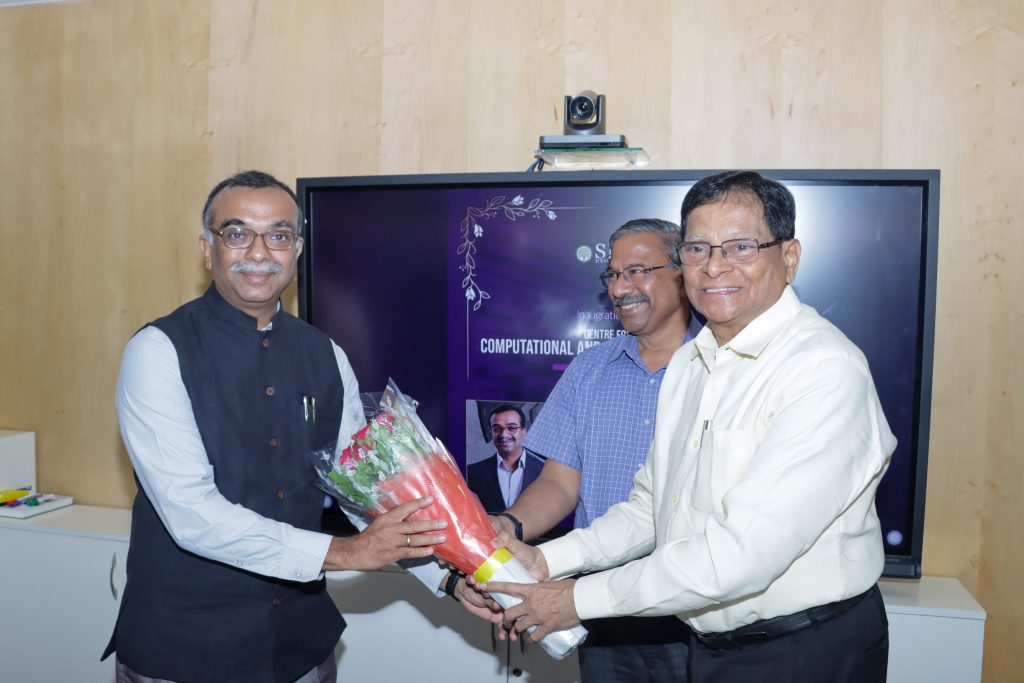
SRM University-AP welcomed Prof. Umesh V Waghmare, President – Indian Academy of Sciences, Bengaluru on the momentous occasion of the inauguration of the Centre for Computational and Integrative Sciences and as the keynote speaker of the 16th University Distinguished Lecture held on September 27, 2023. The institute launched its eighth Centre of Excellence that embraces true interdisciplinary collaboration in alignment with the mission of SRM University-AP. Prof. Waghmare acknowledged the tremendous research infrastructure of the institute that intensifies and cultivates research, innovation, and entrepreneurial spirit on campus. The Centre which is a dedicated platform for computational research, was launched in the presence of Prof. V S Rao, Advisor; Dr R Premkumar, Registrar; Prof. Ranjit Thapa, Dean-Research, Dr. Mahesh Kumar Ravva, Co-ordinator of the center, and faculty of SRM University-AP.
Prof. Waghmare also delivered an insightful session on “How Materials Shape Technologies: Past, Present and Future” as part of the 16th edition of the University Distinguished Lecture Series organised by the institute. “Material Science is an interdisciplinary field of science that witnesses the confluence of natural sciences and engineering. The history of materials (its processing) influences its structure and thus the material’s properties and performances. These diversified materials have influenced humankind significantly from the beginning of our civilization to the 21st century”, stated Prof. Waghmare in his lecture. He also expounded on how materials have been the key to technological revolutions, the impact of Quantum Physics in Material Science and combating present challenges to energy and environment through modern materials and technologies.
Prof. V S Rao, Advisor stated that the primary aim of the University Distinguished Lecture series is to inspire research scholars and students to engage in innovative initiatives that contribute to the comprehensive advancement of our nation. The lecture successfully concluded with a Q&A session and a vote of gratitude. A memento was presented to Prof. Umesh Waghmare as a token of appreciation by Dr R Premkumar.
- Published in News, University Distinguished Lecture


